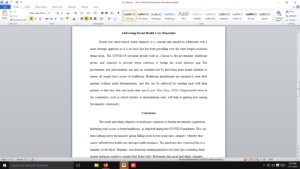Johnson and Johnson
Review the case example of Smith v. Johnson and Johnson on page 423. Do you agree with the court’s ruling? Do you feel it is unfair to exempt certain employees to deprive them of overtime wages? Why or why not?
Question 2
o Prompt: What is the “employment-at-will” doctrine? What are the exceptions to this doctrine?
o Requirements: 250 words minimum for each question
Unit 6 Reading Assignment
- Case Example 22.4 Patty Lee Smith was a pharmaceutical sales representative at Johnson and Johnson (J&J). She traveled to ten physicians’ offices a day to promote the benefits of J&J’s drugs. Smith’s work was unsupervised, she controlled her own schedule, and she received a salary of $66,000. When she filed a claim for overtime pay, the court held that she was an administrative employee and therefore exempt from the FLSA’s overtime provisions.
Answer preview
The Employment-at-will doctrine is an employment agreement used to ensure that an employee is not fired in the wrong way. The at-will doctrine states that employees can quit their job or be fired by the employer at any time. Using this doctrine, employers and employees work together without promises of a long-term relationship. For instance, an employee can quit a job if they find a better opportunity, and an employer can terminate an employee, change employee benefits, or reduce wages with no restrictions. Most employers use the employment-at-will doctrine to defend themselves in case of a lawsuit for terminating a particular employee. By providing the personal document of an employee, an employer can show the reason for job termination.
[652 Words]

Johnson & Johnson

